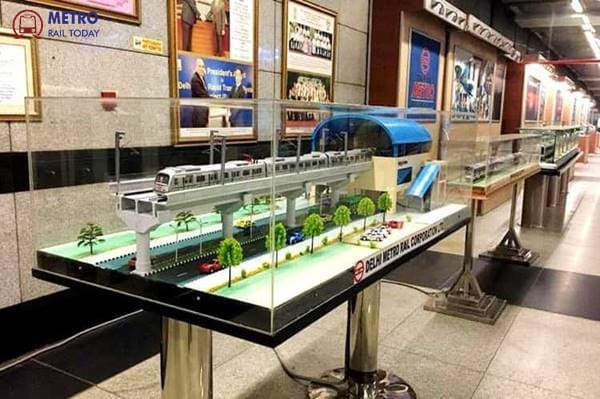 Metro Rail Today continues its legacy as Official Media Partner for 18th Urban Mobility India 2025
Metro Rail Today continues its legacy as Official Media Partner for 18th Urban Mobility India 2025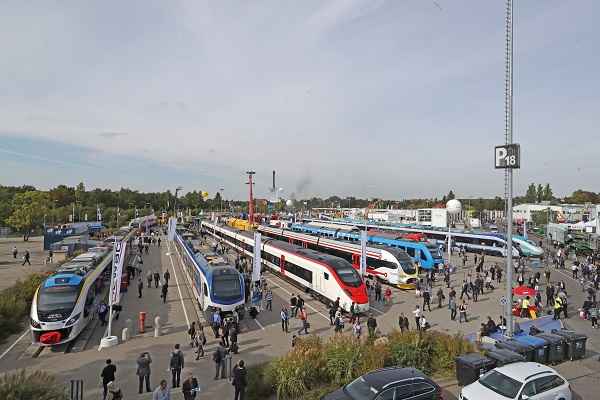 Alstom bags €1.4 billion contract from SNCF Voyageurs to supply 30 Very High Speed Trains
Alstom bags €1.4 billion contract from SNCF Voyageurs to supply 30 Very High Speed Trains Nokia and ST Engineering partner to deploy communications network on Bangkok Metro’s Orange Line
Nokia and ST Engineering partner to deploy communications network on Bangkok Metro’s Orange Line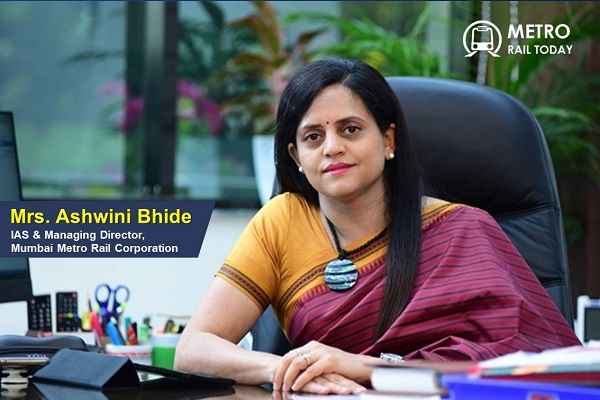 How Mumbai Built Its Deepest Aqua Line Metro Project — And Won the City’s Heart?
How Mumbai Built Its Deepest Aqua Line Metro Project — And Won the City’s Heart?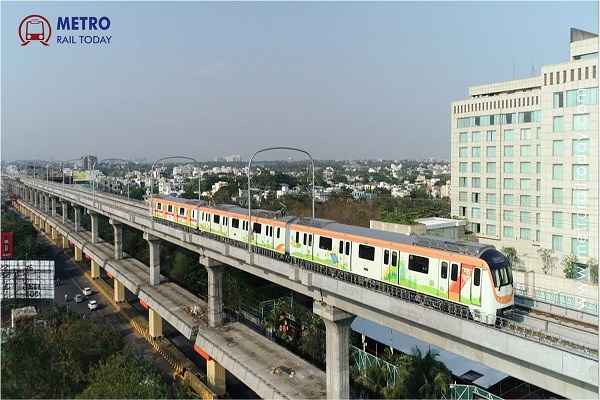 Feasibility Study begins for Sitabuldi–Koradi Metro Corridor under Nagpur Metro Phase 3
Feasibility Study begins for Sitabuldi–Koradi Metro Corridor under Nagpur Metro Phase 3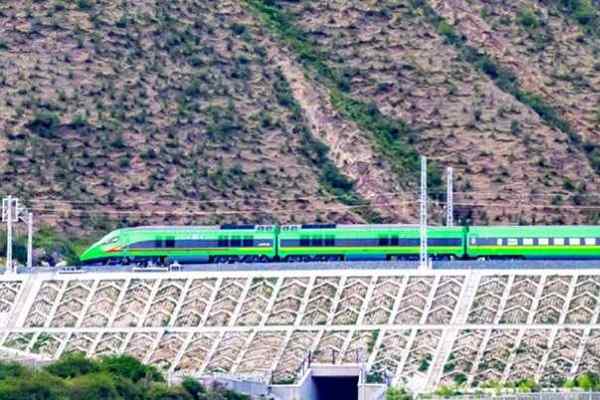 Saudi Arabia’s $7 Billion Land Bridge: Building a High-Speed Future Across the Desert
Saudi Arabia’s $7 Billion Land Bridge: Building a High-Speed Future Across the Desert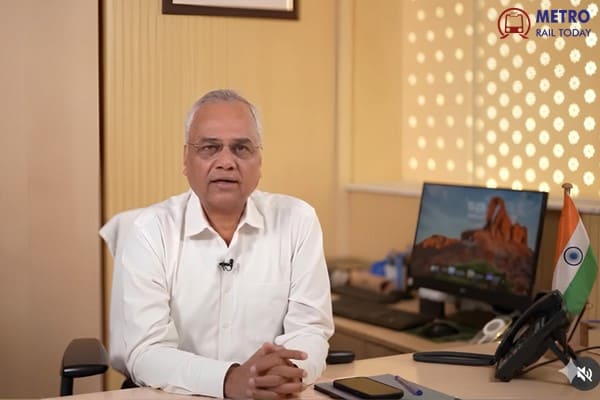 Dedicated Freight Corridors: Powering India’s Logistics Revolution and Sustainable Growth
Dedicated Freight Corridors: Powering India’s Logistics Revolution and Sustainable Growth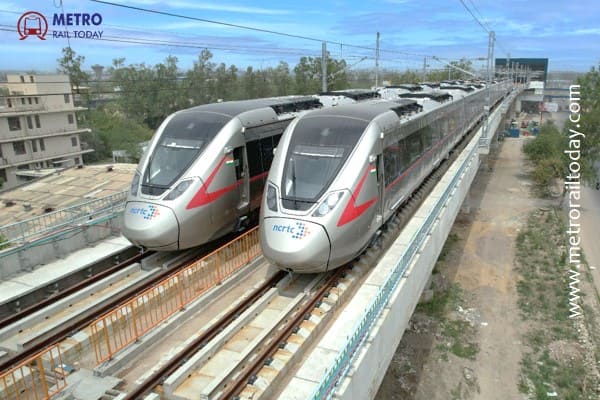 Haryana Govt approves extension of Delhi-Alwar Namo Bharat Corridor to Bawal
Haryana Govt approves extension of Delhi-Alwar Namo Bharat Corridor to Bawal Experts Call for Stronger Cybersecurity Framework in Urban Rail Systems
Experts Call for Stronger Cybersecurity Framework in Urban Rail Systems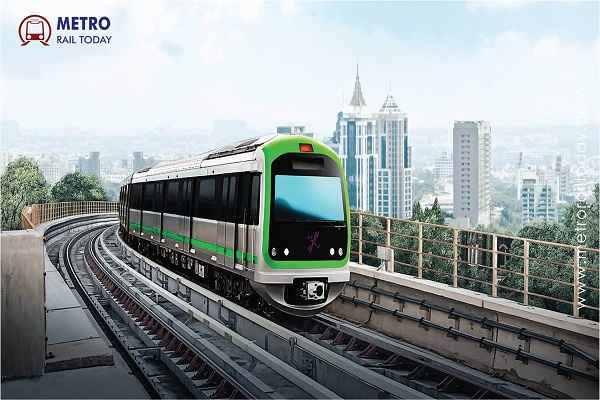 Bangalore Metro celebrates 14 years of public transport services in India’s Silicon City
Bangalore Metro celebrates 14 years of public transport services in India’s Silicon City
Feasibility Study begins for Sitabuldi–Koradi Metro Corridor under Nagpur Metro Phase 3

Nagpur, India (Metro Rail Today): The Maharashtra Metro Rail Corporation Limited (MahaMetro) has begun the feasibility study for the proposed Sitabuldi–Koradi corridor, marking a crucial first step toward expanding the Nagpur Metro network under Phase 3.
Officials confirmed that the study aims to analyse traffic density, commuter movement, and multimodal transport integration along the corridor — a vital precursor to the preparation of the Detailed Project Report (DPR).
Confirming the development, MahaMetro Managing Director Shravan Hardikar said, “We have started analysing the feasibility of this stretch, which includes the PHPDT (Peak Hour Peak Direction Traffic), implementation aspects, and corridor alignment. The study will help us assess ridership potential and identify the most suitable model for the project’s execution.”
MahaMetro’s technical team is mapping existing road networks, right-of-way availability, and urban development zones to ensure the corridor’s alignment causes minimal disruption while offering maximum accessibility to commuters.
Projected Ridership and Traffic Estimates
According to the Comprehensive Mobility Plan (CMP), the proposed Sitabuldi–Koradi corridor is expected to handle a PHPDT of around 5,600 by 2031, rising to 8,050 by 2041 and 11,800 by 2054.
The overall daily ridership is projected at 65,000 passengers by 2031, increasing to 91,000 by 2041 and 147,000 by 2054, indicating Nagpur’s growing reliance on mass rapid transit for urban mobility.
Route and Infrastructure Details
Proposed in July 2025, the Sitabuldi–Koradi corridor will extend the Nagpur Metro network by approximately 11.5 km.
-
The line will branch out from Kasturchand Park Station, featuring an initial 3 km underground stretch through the city’s dense core — an area constrained by multiple flyovers and limited right-of-way.
-
Beyond this, the corridor will transition into an elevated line, featuring around 10 metro stations strategically located to improve connectivity between central Nagpur and the fast-developing Koradi region.
The tentative project cost has been pegged at ₹3,500 crore, based on the prevailing metro construction benchmark of ₹300 crore per km. Officials clarified that final cost estimates will be refined in the DPR currently under preparation.
Integration and Connectivity Goals
The feasibility study will also assess:
-
Financial models and funding options, including PPP structures;
-
Seamless interchange planning with existing metro lines;
-
Last-mile connectivity with feeder buses and urban transport systems.
Upon completion, the study’s findings will form the foundation for the Detailed Project Report (DPR), which will then be submitted for approval to the Maharashtra government and central agencies.
Commenting on the development, Mrs. Mamta Shah, MD & CEO of Urban Infra Group, said:
“The Sitabuldi–Koradi corridor represents the next chapter in Nagpur’s journey towards becoming a model metro city. This project not only addresses the city’s mobility needs but also aligns with India’s broader vision of sustainable urban growth. The emphasis on data-driven feasibility and integrated planning reflects the maturity of India’s metro ecosystem and the commitment to future-ready infrastructure.”
With the completion of Nagpur Metro Phases 1 and 2 transforming regional connectivity, Phase 3 marks a strategic expansion to serve upcoming residential and industrial zones. The Sitabuldi–Koradi corridor is expected to further reinforce Nagpur’s role as one of India’s leading Tier-II smart cities — balancing growth, efficiency, and sustainability in public transport.




